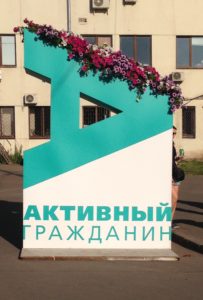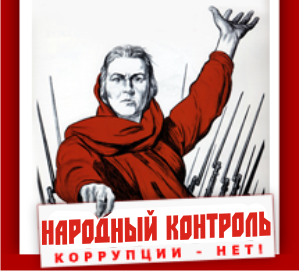
Catherine Owen
How do local governments in post-Soviet societies promote active citizenship? Why is this form of political subjecthood considered necessary for contemporary governance in non-democratic states? And who is this new active citizen expected to be? This was the topic of debate during one of the sessions at a recent one-day workshop held at the University of Exeter with twenty five John Smith Fellows from the five post-Soviet Central Asian republics. The discussion revealed how local governments in Astana, Dushanbe, Bishkek and Almaty are seeking to bring active citizens into being through such mechanisms as public hearings, online forums, local consultative groups, and social media. These active citizens should volunteer their time and expertise in order to improve local public spaces, debate policy proposals and give feedback on which policies are working.
Two interesting, interrelated observations emerged for me from the debate. First, it is clear that non-democratic governments are increasingly seeking voluntary civic involvement in aspects of the local policy process. This fact challenges dominant understandings of the role of citizens in authoritarian governance, commonly seen to consist of either coercion or co-optation (Svolik, 2012; Magaloni and Kricheli, 2010). While not denying the existence of high levels of both coercion and co-optation in aspect of Central Asian politics, we also see a recognition by local governments of the wealth of knowledge and resources possessed by citizens and a concomitant emergence of a wide variety of innovative, participatory mechanisms that seek to put those resources to public use. The challenge for local government officials lies in creating mechanisms that allow them increase civic participation, while ensuring that the practice of active citizenship dose not undermine the overall stability of the political regime. Hence, active citizens’ sphere of activity tends to be limited to policies concerning local budget distribution, clean air, safe streets, and access to utilities.
This begs the question of who this active citizen should be. In the post-Soviet world, the idea of the active citizen is frequently contrasted with that of a ‘passive Soviet-era mentality’, and the discussion with the John Smith Fellows was no exception. Government initiatives should encourage the public to shake off this mentality and get active in local governance. But who was this passive Soviet citizen? Did he/she really exist? A cursory look into the history of local politics in the Soviet Union reveals a plethora of participatory

mechanisms, including local soviets, public organisations, and oversight commissions (see Adams 1977; Friedgut 1979; Hahn 1988). On this reading, the Soviet citizen was anything but passive. This suggests that the trope of the ‘passive Soviet mentality’ in post-Soviet discourses of active citizenship serves a similar function to the ‘benefit scrounger’ or ‘undeserving poor’ in contemporary Western discourses of neoliberal citizenship. It links access to public goods and services to those who are deemed to have earned them, and creates the pariah figure of the lazy shirker, whose inaction is responsible for the state’s economic woes.
Indeed, contemporary individuals who eschew government initiatives aimed to involve citizens in the policy processes are arguably not passive or lazy ‘Soviet-era’ people, who expect welfare handed to them on a plate by a benevolent, paternalistic state. Instead, they may be mistrustful of weak and corrupt state institutions and primarily occupied with securing their basic needs of shelter, subsistence and healthcare. Discussion with the Fellows confirmed that today’s ‘active citizen’ in Astana or Bishkek, is likely to be young, educated, assertive and technologically literate. Members of a nascent middle class, they are driven by patriotic sentiments and want to play a role in shaping their relatively young country’s future. By contrast, people who choose not to get involved may simply be too busy trying to make ends meet.
Overall, the discussion showed that we may observe a neoliberal logic of local governance emerging alongside neoliberal political subjectivities in what are commonly seen as strongly authoritarian states. The local state no longer presents itself as best able to deliver public goods and services and so inculcates new political subjectivities that distinguish the responsible people from the reprehensible people, the modern patriots from the out-dated Soviets, the deserving citizens from the un-deserving masses. Discourses of active citizenship and their opposite, the ‘passive Soviet citizen’, may tell us much about how global discourses of transformation of the state are recontextualised and made meaningful in the post-Soviet political imaginary.
Bibliography
Adams, Jan, Citizen Inspectors in the Soviet Union: The People’s Control Committee (New York, 1977).
Friedgut, Theodore, Political Participation in the USSR (Princeton: Princeton University Press, 1979).
Hahn, Jeffrey Soviet Grassroots: Citizen Participation in Local Soviet Government (Princeton: Princeton University Press, 1988).
Magaloni, Beatriz and Ruth Kricheli (2010) ‘Political Order and One-Party Rule’, Annual Review of Political Science 13: 123-143.
Svolik, Milan, The Politics of Authoritarian Rule (Cambridge: Cambridge University Press, 2012).